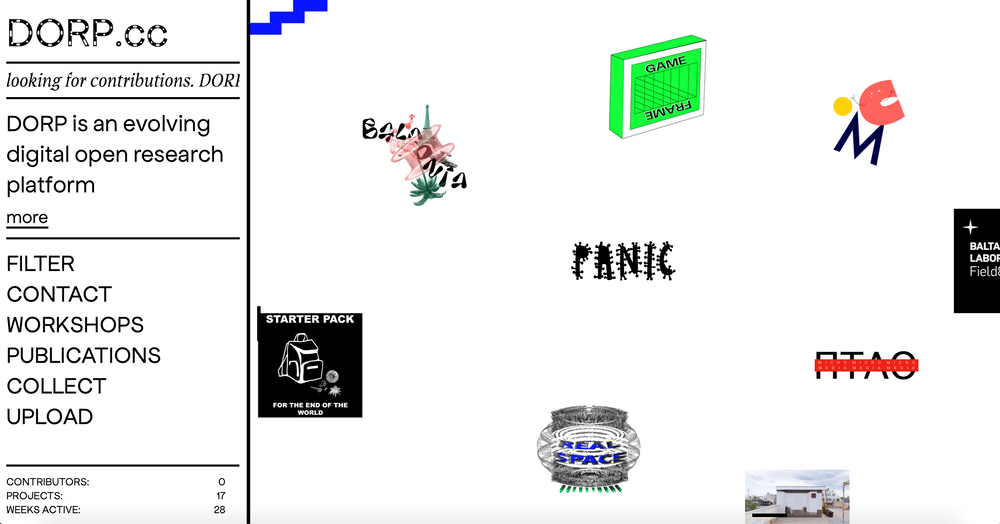
DORP
(Digital Online Research Platform) DORP.CC
A Collaboration between Hivos and DAE
From on April 28 2020, Hivos, a Dutch humanist organization for social change, operating in 40 countries of the Global south, and bachelor department Food Non-food have been working together on the development of DORP.
DORP is a learning platform for young creative to exchange on their practice, across industries. As education in the creative disciplines is highly impacted by the current crisis, DORP intends to provide schools with a new tool to redefine the practices, the modes of sharing, evaluating and promoting projects beyond the usual circles of the creative disciplines.
We have built this online platform to develop new forms of collaboration and promotion for the student community, who will soon face employment challenges. DORP is an open space where projects are developed as calls for collective contributions, beyond personal, national or European settings. DORP is an initiative to learn from other regions and contribute to other regions, without restrictions in geography or academic discipline.
The generated information is archived in compliance with GDPR and under Creative Commons license. This enables contributors to use DORP as a publishing platform where they can browse the archive and curate a series of publications about global solidarity.
Once DORP has gathered a critical mass of projects (100 projects), leading figures of the creative industries will be invited to curate multimedia publications with the information available on DORP. By arranging a collage of contributions in a curated way, they will draw new lines of research out of the international pool of projects. This is a way to further promote the works of the students among professional circles and give a boost to the start of their career.
In a second phase, Design Academy Eindhoven and Hivos will activate their extended networks to curate publications out of the documentation provided by the different contributors. By involving representatives of the creative industries and the development sector, we will provide visibility to the students and share their practice among the partners’ communities.

Example of a project:
Ministry of Change
The idea behind the workshop was to set a borderless "ministry of change" composed of the 5 departments of growth, exploration, solidarity, curiosity and care. This was a way to question leadership structures by proposing new streams of political action.